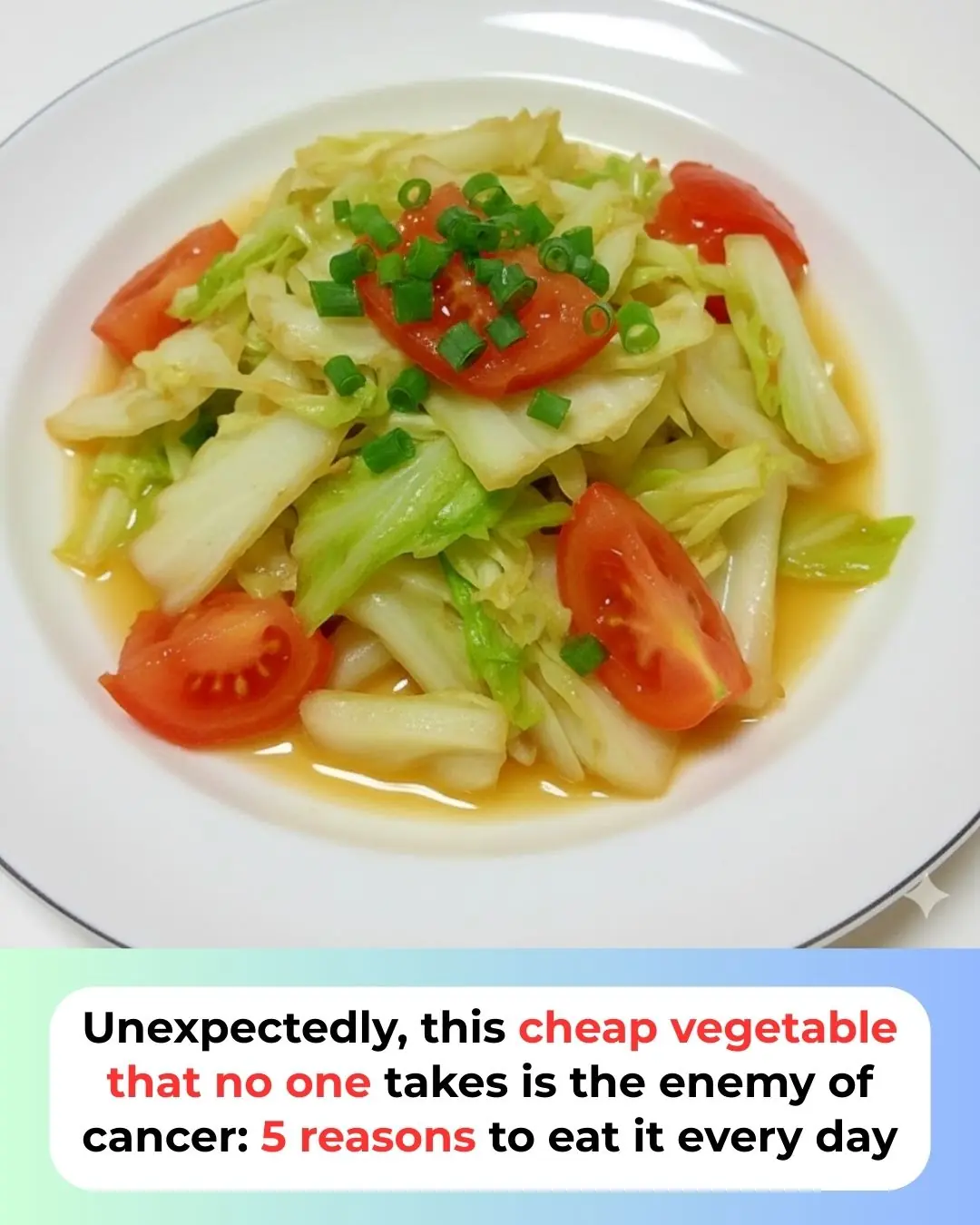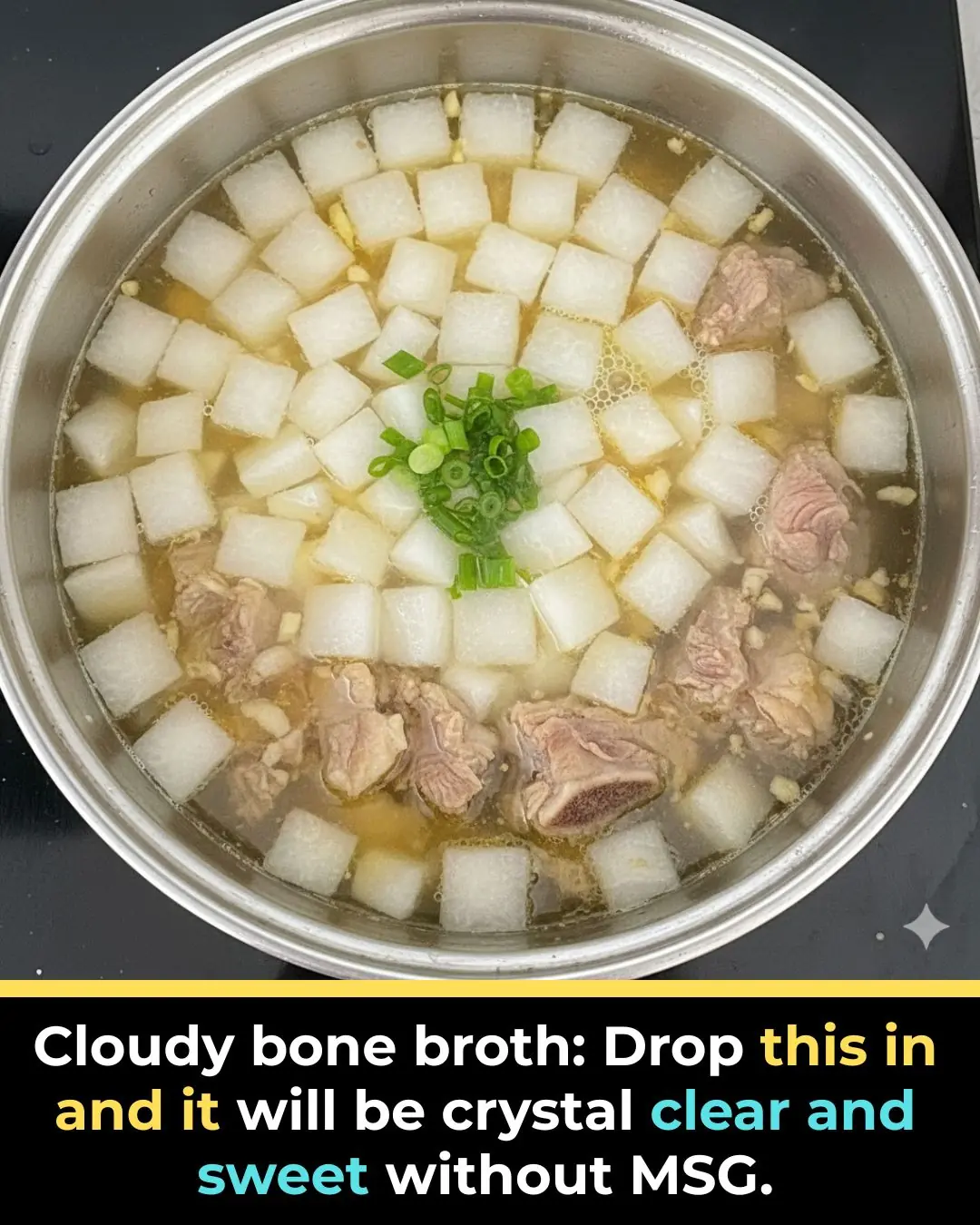
🚫 When to Avoid Ginger — 6 Medical Conditions That May Be Affected

Ginger root is cherished worldwide for its warm, zesty flavor and long history as a natural remedy. For centuries, cultures have used it to:
-
Soothe nausea (especially in pregnancy)
-
Reduce inflammation
-
Support digestion
-
Ease muscle soreness
-
Relieve motion sickness
-
Improve circulation
In normal culinary amounts, ginger is safe and beneficial for most people. But what many don’t realize is this:
👉 Ginger is a bioactive medicinal plant.
That means it can interact with your body in powerful ways — especially when used in concentrated doses or alongside certain medications.
For individuals with specific health conditions, high-dose ginger (teas, capsules, tinctures, extracts) may not always be harmless. In some cases, it can worsen symptoms or interact with prescription drugs.
Below are 6 medical situations where ginger should be used with caution — or avoided — so you can enjoy its benefits intelligently and safely.
Because real wellness isn’t about avoiding natural foods.
It’s about knowing when they help — and when they might hurt.
⚠️ 1. If You’re Taking Blood-Thinning Medications (Anticoagulants)
Why Caution Is Needed
Ginger contains natural compounds that reduce platelet aggregation — meaning it can slow blood clotting. This is helpful for circulation but dangerous when combined with blood thinners such as:
-
Warfarin (Coumadin)
-
Aspirin
-
Clopidogrel (Plavix)
-
Heparin
-
Direct oral anticoagulants (DOACs)
Together, these may increase the risk of:
-
Excessive bruising
-
Internal bleeding
-
Nosebleeds
-
Prolonged bleeding from cuts
A published 2015 case report described a warfarin patient who developed bleeding complications after consuming large amounts of ginger tea daily.
Safe Approach
-
Normal culinary use — like ½ teaspoon of freshly grated ginger — is usually safe.
-
Avoid high-dose capsules, extracts, or daily medicinal teas unless cleared by your doctor.
📌 Always inform your healthcare provider before starting any herbal remedy if you take blood thinners.
⚠️ 2. Diabetes — Especially If You’re Taking Blood Sugar-Lowering Medications
Why Caution Is Needed
Ginger can naturally lower blood sugar and improve insulin sensitivity. While helpful, this can become risky if you’re already taking:
-
Insulin
-
Metformin
-
Sulfonylureas
-
GLP-1 medications
The combination may trigger:
-
Hypoglycemia (dangerously low blood sugar)
-
Weakness or dizziness
-
Shaking, confusion, or faintness
Human and animal studies both suggest ginger’s ability to enhance insulin function — but this benefit becomes a liability in high doses.
What to Do
-
Monitor your glucose if you consume ginger daily.
-
Speak with an endocrinologist before adding supplements.
-
Small amounts in meals (tea, stir-fries, soups) are generally safe.
⚠️ 3. Gallstones
Why Caution Is Needed
Ginger stimulates bile production and increases gallbladder contractions. This is excellent for digestion — but not ideal for people with gallstones.
More bile movement may trigger:
-
Sudden right-upper abdominal pain
-
Nausea
-
Gallbladder spasms
Safer Approach
-
Avoid concentrated extracts or high-dose supplements.
-
Light culinary use may be acceptable, but check with your doctor.
-
If ginger consistently triggers discomfort, consider scheduling a gallbladder ultrasound.
⚠️ 4. Low Blood Pressure (Hypotension)
Why Caution Is Needed
Ginger can mildly reduce blood pressure by relaxing blood vessels and enhancing circulation.
If you already struggle with low blood pressure, this can cause:
-
Lightheadedness
-
Fainting
-
Difficulty standing up quickly
-
Weakness or dizziness after meals
Advice
-
Avoid large amounts, especially medicinal teas or capsules.
-
Stay well hydrated and rise slowly from sitting or lying positions.
-
For most healthy adults, this isn’t a concern.
⚠️ 5. Heart Conditions & Arrhythmias (Irregular Heartbeat)
Why Caution Is Needed
Rare reports suggest extremely high doses of ginger might influence heart rhythm, potentially due to:
-
Electrolyte shifts
-
Drug interactions
-
Changes in blood pressure
Individuals with a history of:
-
Atrial fibrillation
-
PVCs or other arrhythmias
-
Pacemakers or defibrillators
…should avoid taking large or medicinal quantities without approval.
Bottom Line
-
Normal dietary use is safe.
-
Avoid high-dose supplements unless your cardiologist approves.
⚠️ 6. Pregnancy — Especially Second and Third Trimester or High Doses
Why Caution Is Needed
Ginger is well known for reducing morning sickness, and research supports its safety in low-to-moderate doses (≤1 g/day) during early pregnancy.
Concerns arise because:
-
High doses may stimulate uterine contractions (primarily animal data)
-
Ginger has mild antiplatelet effects
-
Supplements vary in potency and purity
The American College of Obstetricians and Gynecologists (ACOG) states that ginger up to 1 g/day is generally safe for early-pregnancy nausea.
Play It Safe
-
Use only when needed for nausea.
-
Avoid high-dose extracts.
-
Discontinue before delivery to reduce bleeding risk.
-
Always consult your OB-GYN if considering supplements.
✅ Who Can Safely Enjoy Ginger?
Most people can benefit from ginger in cooking or moderate therapeutic doses.
Healthy Adults
-
Up to 4 g/day total (food + supplements) — WHO guideline.
Pregnant Women
-
≤1 g/day specifically for nausea relief.
People With Arthritis
-
2–3 g/day may help reduce inflammation and joint pain.
Cancer Patients
-
Many find ginger tea helpful for chemo-related nausea (with doctor approval).
Best forms: fresh ginger, powdered spice, brewed tea.
Avoid: ingesting essential oil — it is not safe for internal use.
❌ Common Myths About Ginger — Debunked
“Ginger cleans your arteries.”
→ No scientific evidence. It supports circulation, but doesn’t remove plaque.
“More ginger = more benefits.”
→ False. High doses raise the risk of side effects.
“You must stop ginger before surgery.”
→ True — stop all herbal supplements 1–2 weeks before elective surgery.
“Ginger causes ulcers.”
→ False. Research suggests ginger may actually help protect the stomach lining.
Final Thoughts
You don’t need to fear ginger — but you should respect its potency.
Next time you add it to your tea or meal, take a moment to ask:
-
Am I on medication?
-
Do I have a chronic condition?
-
Am I pregnant or planning surgery?
Use ginger in ways that support your health, not compromise it.
Healing is about balance — knowing when a natural remedy is helpful, and when it’s wiser to pause.
Sometimes, wellness starts with one mindful sip… and one smart choice.
News in the same category


A Simple Trick to Make Your Air Conditioner Work Smarter

Bury Garlic in Your Rice Container for Amazing Benefits – Don’t Miss This Simple Trick

How to Fry Tofu to Golden Crisp Perfection Without Oil Splashes or Sticking

Don’t Wash a Moldy Wooden Cutting Board with Soap: Clean It Like New in Just 5 Minutes

The Pork Cut That Only Weighs 200g: Tender, Delicious, and Even Healthier Than Beef

Placing a Plate of Salted Lemons by Your Bed: 5 Surprising Benefits Few People Know About

Throwing Away Coffee Grounds Is Like Throwing Away Money — Essential Uses Every Household Should Know

Unexpectedly, This Extremely Cheap Vegetable No One Values May Offer Powerful Health Benefits: 5 Reasons to Eat It Daily

6 Surprisingly Useful Functions of Your Phone’s Volume Buttons — You May Not Know Them All

You're doing it all wrong. Here’s the right way to prevent winter mold

Here’s the right way to keep indoor air fresh in winter

Soak face towels and bath towels with this powder, the musty smell disappears, kills all bacteria, and leaves no sticky residue.

Buy dried onions and make them this way, so they won't sprout or rot all year round, and will always taste as delicious as new.

Cloudy bone broth: Drop this in and it will be crystal clear and sweet without MSG.

How to use a fan to make the room cool like turning on the air conditioner: Using it for a long time, you may not know for sure

Clams with sand in their mouths just need to add something and they will spit it all out.

How to peel durian simply and easily, how long can you preserve it and it will still be as delicious as when you first picked it?

Choose watermelon just look at this point, the fruit is sweet, thin skin, the whole family will praise it
News Post

Injectable Gel Breakthrough Brings New Hope for Nerve Regeneration

Why Boiled Eggs Deserve a Spot on Your Breakfast Table

Goodbye Synthetic Dyes: Doritos Join the Push for Cleaner, Transparent Ingredients

Breakthrough Research Suggests Kidney Damage May Be Reversible After All

How Intermittent Fasting Protects the Heart: New Evidence on Blood Clots and Cardiovascular Health

New Evidence Links Hepatitis C to Brain Pathways in Mental Illness

ITV breaks silence as Celebrity Big Brother is ‘axed from ITV schedule’

Peter Andre teases ‘special’ project with wife Emily: ‘We are having exciting meetings’

What Happens to Your Body When You Eat Canned Tuna Every Day

I’m A Celebrity star Kelly Brook’s husband reveals when he’s flying out to Australia

Kris Jenner shows support for Meghan Markle weeks after Kardashians photo scandal

Inside Angry Ginge’s ‘bromance’ with Angry Ginge – how they met; ‘going to war’ over diss track; huge ‘risk’ that ‘paid off’

Ant McPartlin’s tattoos explained – tribute to wife Anne-Marie; uproar over ‘missing’ family member; nod to his recovery

Emmerdale disaster incoming: Bear’s fate ‘sealed’ as Joshua Richards makes devastating admission

How Do Farmers Grow Avocado Trees

Robron plot Kev’s downfall – but Emmerdale fans declare they ‘love him’

If You See a Woman Wearing a Wedding Ring On Her Pinky, Here's What It Means

2-Minute Painless Hair Removal: Natural At-Home Solution
